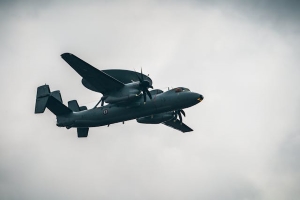Incorporating EMS Contestation in Strategic-Level Wargames

Speaker: Dr. Ross Buchanan (Center for Global Security Research at Lawrence Livermore National Laboratory)
Date: 11 February 2025
Speaker Session Summary
SMA hosted a speaker session with Dr. Ross Buchanan (Center for Global Security Research at Lawrence Livermore National Laboratory) as part of its SMA General Speaker Series.
Electromagnetic spectrum (EMS) contestation occurs when two or more actors use EMS to gather information or disrupt an adversary’s ability to operate. War games must accurately reflect the prevalence of EMS contestation to prepare participants for real-world scenarios. Dr. Buchanan suggested incorporating this by giving one player or team more information than their adversary, simulating an information advantage in the operating environment. He emphasized that any war game can be modified to represent these dynamics, ensuring better decision-making.
EMS contestation is not static; it involves constant shifts in control. Dr. Buchanan stressed the importance of modeling this ebb and flow in war games to ensure accuracy. Beyond the quantity of information, the timeliness of its delivery is also critical. For example, even accurate information may lose value if it is outdated.
Actors can influence the EMS, which consists of electromagnetic radiation (EMR)—a fundamental component of our environment. EMS refers to the wavelengths of EMR, which range from kilometers in length to microscopic scales. Dr. Buchanan highlighted that EMR is exceptionally effective for transmitting and receiving information without requiring a physical link. Gamma rays and other EMR receptors and transmitters can send and receive signals across vast distances.
However, there is a tradeoff between range and bandwidth across the spectrum. Low-frequency waves travel great distances but have low bandwidth, limiting the amount of information they can carry. To optimize communication, a sender must access a broad portion of the spectrum, leveraging both low and high-frequency waves to efficiently transmit large amounts of information over long distances.
Speaker Session Recording
Briefing Materials
Biography: Ross Buchanan, PhD, is a political scientist working as a postdoctoral research fellow at the Center for Global Security Research (CGSR) at Lawrence Livermore National Laboratory (LLNL). He is a political scientist with 11 years of experience conducting primarily quantitative political science research. His current work focuses on leveraging wargaming and simulation techniques to inform strategies for strengthening deterrence and managing escalation. He has also conducted research on public opinion, policy, and outcomes that spill over administrative boundaries. He has a strong substantive background in both the security and energy & environmental policy domains, having led or contributed to multiple research projects on wargaming, decarbonization efforts in state-level transportation policy, mitigating local-level air pollution, and public awareness of drought and wildfire smoke. Methodologically, his work has used a diverse collection of statistical approaches, including linear regression, time series cross-sectional analysis, structural equation modeling, and spatial autoregressive modeling.
Comments